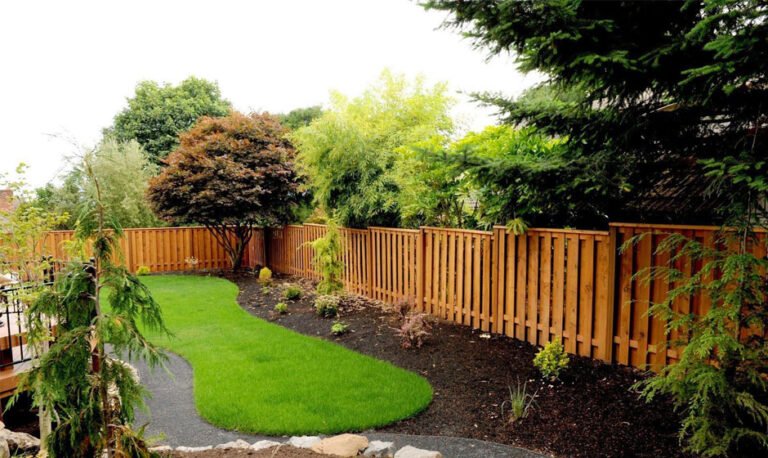The material and size of your fence can impact your property’s functionality and appearance. A professional fence company can help you choose an appropriate material and size after assessing your needs and type of property. Your chosen company will likely consider factors like your fence’s purpose, budget, and maintenance requirements when advising you. Here’s an in-depth look at these and additional factors:
Choosing the Right Fence Material
Numerous fence material options are available, from wood and stone to iron and aluminum. While each material offers unique benefits, some may better suit your property than others. Here are several considerations to make when choosing the right fence material:
Purpose
People install fences for varying reasons. Some install them to enhance their security, others to promote privacy, and others to separate their properties from their neighbors. The intended purpose of your fence can help you determine the best material. Consider sturdy metal fences, such as wrought iron and aluminum, to improve security. Options like wood and vinyl benefit privacy, as they can offer minimal visibility. Brick and stone fences can be suitable for defining boundaries, creating a clear and durable divider between your home and other properties.
Maintenance Requirements
Maintenance requirements vary among materials, with some needing more care than others. Wood requires periodic staining or sealing to maintain its aesthetic appeal and enhance moisture and UV damage resistance. This makes it a suitable choice for property owners looking for minimal maintenance. Your chosen fence company can help you understand how to maintain your wood fence for optimal durability.
Other low-maintenance fence options include high-quality metals, such as iron and aluminum. They’re less susceptible to physical damage than other options, requiring fewer repairs. Aluminum and iron fences may also be coated to resist corrosion and fading. Spraying them down occasionally can help maintain their appeal.
Budget
Determine your budget for the fence project, as different materials are available at varying prices. Compare the cost of the fence material with its durability and maintenance requirements to assess the long-term value of your investment. You can also contact a professional fence company to inquire about current specials, deals, or discounts for fence materials.
Local Regulations
Some homeowner associations (HOAs) have guidelines on the types of fences property owners can install. Failure to comply with these guidelines can result in fines. You may also be required to remove your fence, wasting your resources. Review your HOA rules on fence materials, if any, to avoid complications.
Choosing the Right Fence Size
The size of your fence can directly influence your property’s accessibility, functionality, and curb appeal. Consider the following factors when choosing your fence size:
Property
The size of your property will determine the appropriate size of your fence. Measure the specific area you want to enclose before specifying your fence size. Confirm your property lines beforehand to avoid conflicts with neighbors if planning to enclose your entire property. When measuring your property, take note of existing structures and trees you may need to go around or remove before installation begins.
Consider your property’s layout, as slopes can impact fence size and installation. If your property has slopes or hills, measure the height difference between the highest and lowest points to identify the maximum height variation your fence needs to accommodate. You can also hire a professional fence company for proper measurements.
Purpose
A tall fence with minimal spaces between the boards or panels is suitable for privacy and security. This type of fence blocks the view of any onlookers or passersby, making sure your personal space is not compromised. If you want a tall fence, review your area’s zoning ordinances, building codes, and HOA guidelines on the maximum height allowed for your property beforehand. If you want to demarcate a property line but maintain an open feel, a short fence can allow for an unobstructed view of the surrounding area.
Budget
Large fences are typically more expensive than small ones because they require more materials and labor. Consider the trade-offs between your budget and desired size when deciding what to choose. Consult a professional for additional insights if you have a limited budget but want a larger fence. They can provide suggestions for fences that may be extended in the future to help you stay within your current budget.
Consult a Professional Fence Company
Choosing the right fence for your property can offer added security, increased privacy, and enhanced curb appeal. Consult a professional fence company to install a durable, sleek, and functional fence that meets your needs. They can use their expertise to conduct a site evaluation and provide recommendations on the most suitable fence style, material, size, and color.


